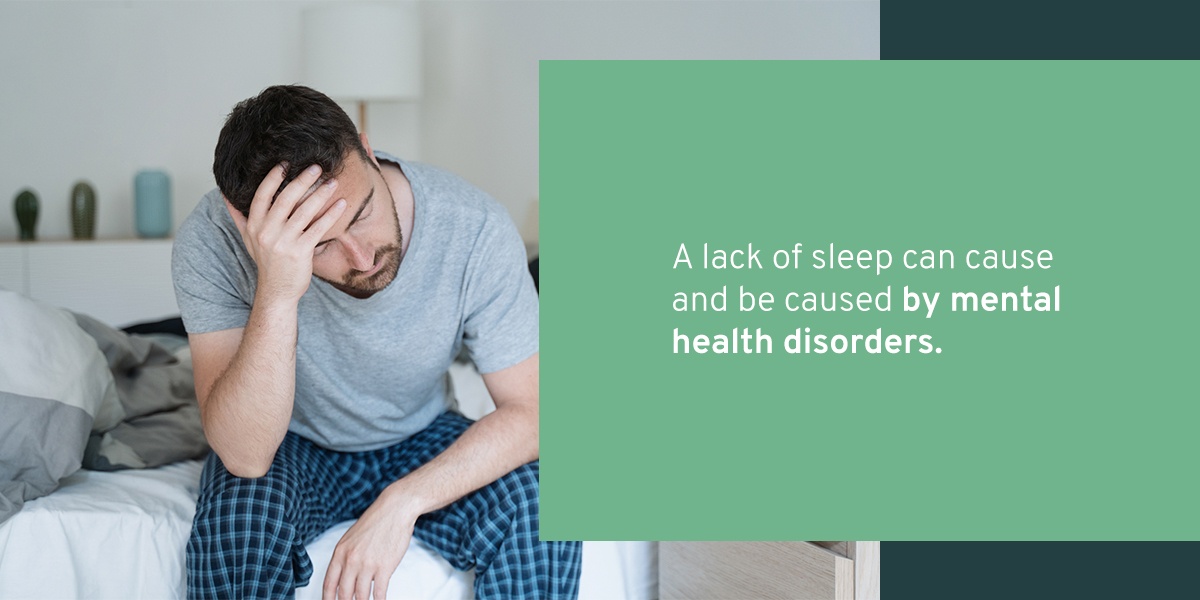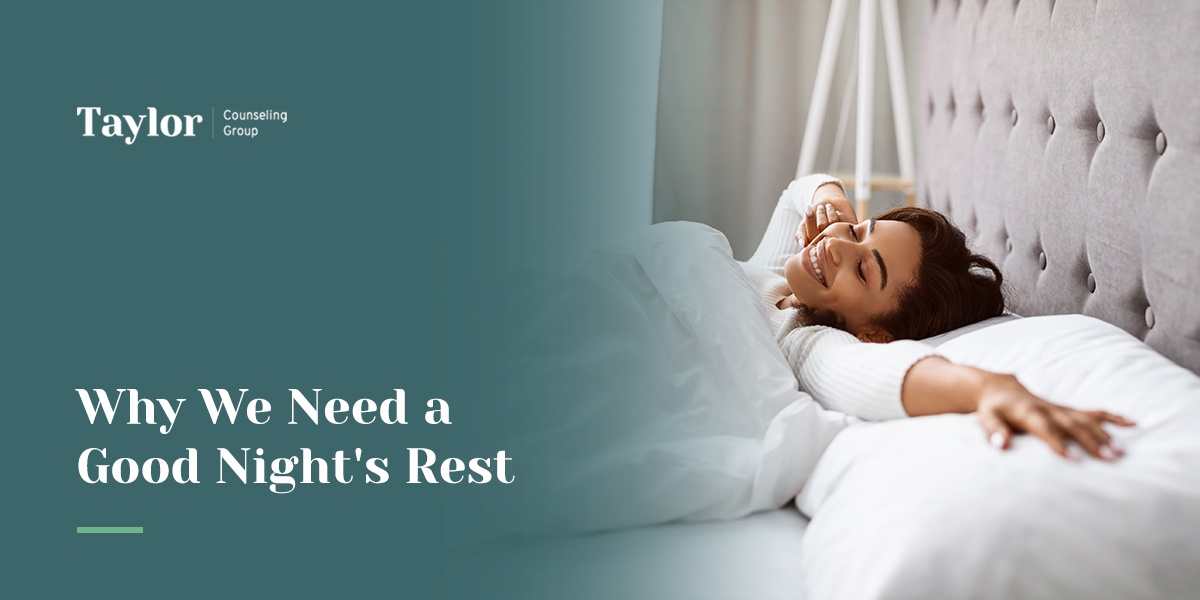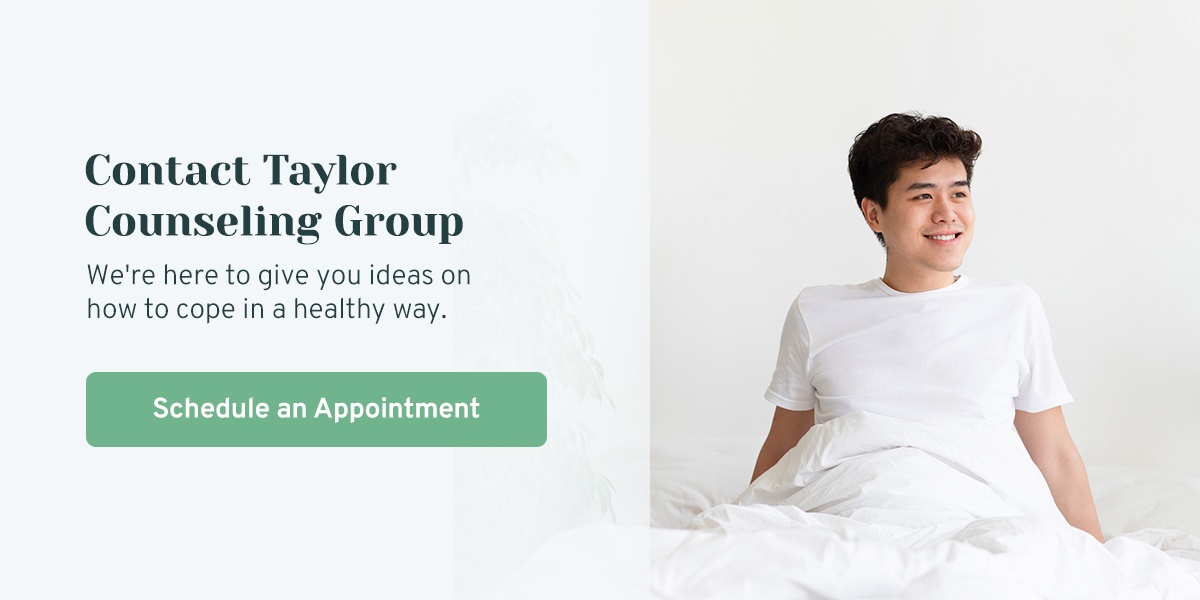Not getting enough sleep goes beyond just making you feel tired the next day. There are wonderful benefits of getting a good night’s rest, but if you struggle to fall asleep or stay asleep, you should address the issues to gain those benefits.
Let’s explore the benefits of sleep, why you might have trouble sleeping, how poor sleep affects mental health and how to get a good night’s rest.
What Are the Benefits of Sleep?
Several vital biological processes occur during sleep that make quality rest so important, including:
- Conserve your energy: Your metabolism lowers during sleep. When your body functions at a lower metabolism, you use fewer calories and save energy.
- Restore your cells: While you sleep, your body repairs muscles, synthesizes protein, grows tissues and releases hormones. That makes sleep a restorative process.
- Help maintain your weight: Getting good sleep can help you avoid obesity, type 2 diabetes and metabolic syndrome. This is because the hunger hormone that makes you feel full, leptin, increases while you sleep, and the hunger hormone that makes you hungry, ghrelin, is suppressed while you sleep.
- Boost your immunity: When your body is deprived of sleep, your immune system becomes inhibited. This is because when you sleep, your body creates cytokines, which help to fight infection. Your body also makes antibodies as you sleep, making sleep particularly essential if you’re sick.
- Protect your heart health: Poor sleep can lead to high blood pressure, insulin resistance, increased cortisol levels, weight gain and increased sympathetic nervous system activity. All of those concerns are risk factors for heart disease.
- Promote your insulin function: Sleep ensures your cells are ready to take up glucose, protecting you against insulin resistance. With insulin resistance, your cells don’t process sugar properly, which can lead to high blood glucose levels and type 2 diabetes.
- Help your brain function: Your nerve cells reorganize while you sleep, which is beneficial for learning, memory, creativity, problem-solving, decision-making, focus and concentration.
- Maintain your emotional well-being: Several areas of the brain benefit from increased activity during sleep, including the amygdala and the hippocampus. These areas of the brain help regulate emotion, which allows you to manage stressful situations effectively.
Why Do I Have Trouble Sleeping?
There are many reasons why you might be having trouble sleeping. If you have short-term insomnia, or insomnia that lasts a few days up to a month, you may be suffering for the following reasons:
- New environment and unfamiliarity
- Extreme temperatures
- Uncomfortable bed or mattress
- Excessive noise or light
- Physical discomfort or pain
- Jet lag
- Work deadlines or examinations
- Difficulties in a relationship
- Deaths of relatives or close friends
- Certain medications
- Acute illness and allergies
Those and other factors can also make it difficult to sleep one night and may not necessarily be signs of insomnia.
If you have consistent problems sleeping, it may be because of several different reasons. For example, medical conditions, psychological conditions, medications, stimulants and age can all be contributing factors to chronic fatigue.
Exploring deeper, there are three types of insomnia that all have a different list of possible causes:
- Onset insomnia: This trouble falling asleep may be caused by stimulants, stress, chronic pain or abrupt lifestyle changes.
- Maintenance insomnia: This form of insomnia represents trouble staying asleep. Asthma, allergies, sleep apnea, acid reflux, chronic pain, stress or restless leg disorder can all be causes.
- Behavioral insomnia of childhood: This issue is trouble sleeping because of negative associations formed during childhood with sleep. It begins in childhood and can continue into adulthood.

How Poor Sleep Affects Your Mental Health
There are different stages during sleep, all of which are marked with different levels of brain activity. Each of these stages is important for brain health. One stage is called non-rapid eye movement sleep (NREM), which is characterized by slow brain activity and quick bursts of energy. The other stage is called rapid eye movement sleep (REM), which is characterized by rapid brain activity and intense dreaming.
Each stage allows for the increase and decrease of activity in different parts of the brain, which ultimately promotes better memory, learning and thinking. It has also been shown that the brain activity that occurs during sleep has positive impacts on mental and emotional health.
During REM sleep, your brain processes emotional information by evaluating and remembering memories and thoughts. A lack of sleep means your brain isn’t processing positive emotional content, which can negatively impact your mood.
It was once thought that sleep problems were caused by mental health disorders. But research has found a bidirectional relationship between mental health and sleep. In other words, a lack of sleep can cause and be caused by mental health disorders.
Mental health has also been linked to obstructive sleep apnea. Obstructive sleep apnea is when your breathing stops during rest, which causes a disruption of sleep and lowers oxygen levels. It has been found that obstructive sleep apnea is more frequently found in those with psychiatric conditions, which can make their risk for mental distress higher.
Consequences of Poor Sleep on Mental Health
Current evidence points to a complex relationship between sleep and mental health. This relationship also varies from person to person.
Overall, poor sleep can affect your mental health in various ways. Below are some common consequences of sleep deprivation:
- Mood changes
- Anxiety
- Poor memory
- Depression
- Fatigue
- Poor focus and concentration
How to Get Better Sleep
If you struggle to fall asleep or stay asleep, try some tips to help yourself gain the benefits of rest:
- Create a sleep schedule: Try to go to bed and wake up at the same time every day, aiming for at least seven hours. Consistency can help get your body into a sleep rhythm.
- Watch what you eat and drink before bed: Avoid things like coffee, caffeinated teas and sugar before bed. Try not to go to bed hungry, but don’t eat a large or heavy meal within a couple of hours of trying to sleep.
- Watch what you do before bed: Nicotine, a stimulant, can make it harder to fall asleep, and so can looking at a screen. And while being active during the day can help make you tired at night, exercising close to bedtime can wind you up rather than wind you down.
- Have a soothing environment: Create a bedroom oasis that welcomes sleep. You might use blackout curtains or set your devices aside before getting in bed. A fan or white noise machine can also help ease you into sleep. Keep your bedroom clean and organized, as well, to help reduce stress as you fall asleep.
- Address your stress and anxieties: If a racing mind keeps you up at night, do what you can to address your worries during the day. Write out your feelings in a journal, take a walk or meditate. You might also consider reaching out to a friend or loved one or talking to a professional about your anxiety.
Contact Taylor Counseling Group
Here at Taylor Counseling Group, we provide professional and affordable care for those who struggle with their mental health or for those who just need a bit of advice. Because sleep has such a complex relationship with mental health, it can be helpful to work with a professional to determine what problems you’re having and why. Once we get to that root cause, we’re here to give you ideas on how to cope in a healthy way that can hopefully get your sleep back on track!
Give us a call at (214) 530-0021 or schedule an appointment online.






